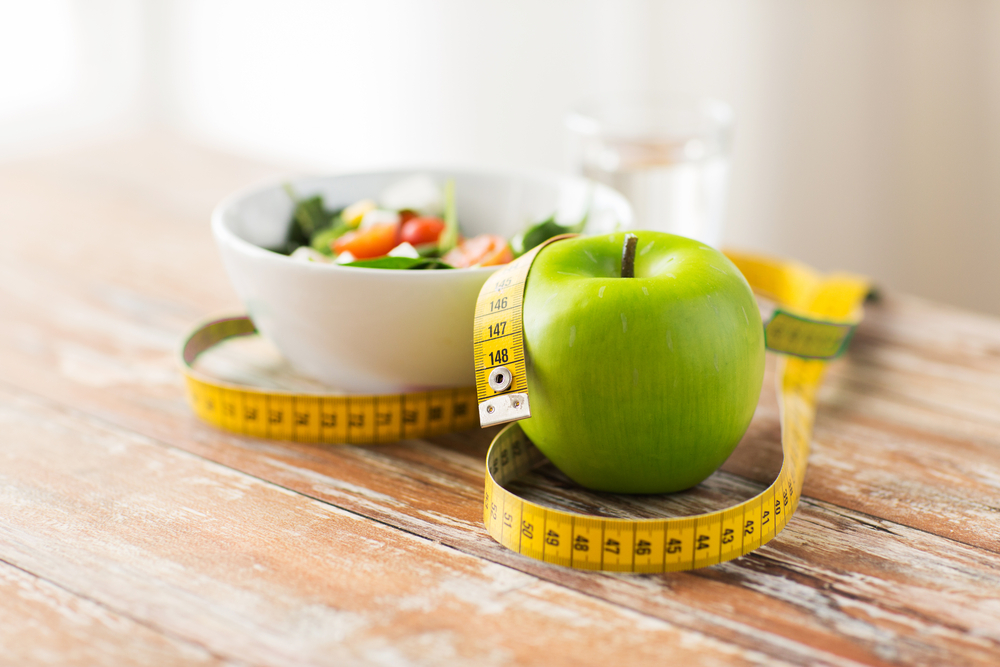Do you have a goal of losing weight or just want to keep it off, but don't know how to go about it? Here we give you the secrets of a healthy and balanced diet to lose weight effectively and enjoyably. Why choose a diet to lose weight? When we want to lose weight, the first thing that comes to mind is a diet. We don't necessarily know why we're doing it or how we're doing it, but we just know it's the right thing to do so we go for it! However, this lack of understanding can lead to a problem with monitoring and, in turn, the effectiveness of the diet. We reveal the reasons behind a diet. Health benefits of dieting If dieting is the first method suggested when we want to lose our extra pounds, it is mainly for the positive effects it has on our health. Diets allow our bodies to meet their nutrient needs without excessive control over the amount of food we take in.
Thanks to this, we can lose weight without feeling hungry or tired and without depriving ourselves of any food. The whole thing is simply based on the quality of the food we take and listening to our food sensations: not eating when we are not hungry and stopping eating when we feel full. Having a healthy diet therefore generally avoids any health problems that can be caused by dietary deficiency and excess weight. But be careful not to lose more than 1kg per week during your diet! This is harmful to your body! Effects of dieting on the body Do you have this problem of being hungry all the time? Do you always want to eat, as if your life depends on it? Understand the effects that healthy dieting has on your body and you will soon realise that these feelings are more related to your psyche than your physical needs. But how does it work? Our body, in order to function, needs nutrients. So could having a consistent diet meet this need? No! It is not the quantity of food consumed that counts in the functioning of our body, but its quality: if we eat, but it does not compensate for our needs, our body will always ask for more. Following a diet that takes into account the energy or caloric intake of foods therefore promotes a diet that is more likely to provide for our needs correctly, and without excess. It is this excess that causes the accumulation of extra fat in our bodies and therefore weight gain. By avoiding it, it is easier for our body to draw what it needs from our stock and maximise the loss of our extra kilos.
Having a healthy and balanced diet is therefore necessary to lose weight while remaining operational! What foods should you put in your diet to make it effective? While the effects of dieting on our bodies and health are undeniable, the question of what to put in the diet continues to arise. Here we offer you a list of foods to put forward in your diet so that it is effective, without depriving you of any pleasure. (find ourweight loss food plan) Favour a low calorie density diet If you want to avoid excess fat, it is best to favour low calorie density foods. The amount of calories contained in these should therefore be small in relation to their volume. These low volume to calorie ratio foods include fruit, vegetables and grain products. Unlike high calorie density foods (chips, pizza,. . . ), you need to eat them in large quantities before you can meet your energy needs. This will effectively calm your hunger while allowing your body to function properly, without storing extra fat. Prefer fibre and protein Foods containing fibre and protein are satiating and help meet our body's needs perfectly (our body needs 25-30g of fibre per day and 20% protein to function easily).
They also provide stable energy, reducing the feeling of hunger, and absorb sugar into the bloodstream, preventing the rapid accumulation of lipids (fat). To lose a few kilos, we therefore advise you to include meat and its substitutes (soya, tofu,. . . ), fruit and vegetables, eggs or low-fat dairy products in your diet. Find ourweight loss diet program. What foods to avoid if you want to lose weight? While many foods can be put into your diet, not all of them are good for yourweight loss. We've come up with a list of what you should avoid eating to limit calories and maximise your weight loss. Limit high-fat foods Note that fat is the food constituent that provides the most calories. Necessary for the proper functioning of your body, it is however advised to limit its rate to 30% of the total calories you absorb. If you eat more than this, you risk putting on weight. Foods from fast food (fried food, breadcrumbs,. . . ), pastries, pastries, or even full-fat dairy products, containing a significant amount of saturated fat, should therefore be avoided when you want tolose kilos. Don't take too many industrial finished products Industrial finished products are also packed with calories (carbohydrates, fat, protein,. . . ) in addition to containing several elements that are harmful to health. As part of a healthy and balanced diet, we therefore advise you to limit the consumption of these products. Go for organic, your health and weight will be better off! Find out about ourlow carbohydrate diet program. What to do to follow your diet correctly? Do you find it difficult to follow your diet? Here we give you some recommendations to remedy this. Be vigilant about what you eat The ultimate rule for a pleasant diet is:Eat what you want, but be careful what it contains!
Do you have a goal of losing weight or just want to keep it off, but don't know how to go about it? Here we give you the secrets of a healthy and balanced diet to lose weight effectively and enjoyably.
Why choose a diet to lose weight?
When we want to lose weight, the first thing that comes to mind is a diet. We don't necessarily know why we're doing it or how we're doing it, but we just know it's the right thing to do so we go for it! However, this lack of understanding can lead to a problem with monitoring and, in turn, the effectiveness of the diet.
We reveal the reasons behind a diet.
Health benefits of dieting
If dieting is the first method suggested when we want to lose our extra pounds, it is mainly for the positive effects it has on our health.
Diets allow our bodies to meet their nutrient needs without excessive control over the amount of food we take in. Thanks to this, we can lose weight without feeling hungry or tired and without depriving ourselves of any food.
The whole thing is simply based on the quality of the food we take and listening to our food sensations: not eating when we are not hungry and stopping eating when we feel full.
Having a healthy diet therefore generally avoids any health problems that can be caused by dietary deficiency and excess weight.
But be careful not to lose more than 1kg per week during your diet! This is harmful to your body!
Effects of dieting on the body
Do you have this problem of being hungry all the time? Do you always want to eat, as if your life depends on it? Understand the effects that healthy dieting has on your body and you will soon realise that these feelings are more related to your psyche than your physical needs. But how does it work?
Our body, in order to function, needs nutrients. So could having a consistent diet meet this need? No! It is not the quantity of food consumed that counts in the functioning of our body, but its quality: if we eat, but it does not compensate for our needs, our body will always ask for more.
Following a diet that takes into account the energy or caloric intake of foods therefore promotes a diet that is more likely to provide for our needs correctly, and without excess. It is this excess that causes the accumulation of extra fat in our bodies and therefore weight gain. By avoiding it, it is easier for our body to draw what it needs from our stock and maximise the loss of our extra kilos.
Having a healthy and balanced diet is therefore necessary to lose weight while remaining operational!
What foods should you put in your diet to make it effective?
While the effects of dieting on our bodies and health are undeniable, the question of what to put in the diet continues to arise. Here we offer you a list of foods to put forward in your diet so that it is effective, without depriving you of any pleasure. (find ourweight loss food plan)
Favour a low calorie density diet
If you want to avoid excess fat, it is best to favour low calorie density foods. The amount of calories contained in these should therefore be small in relation to their volume.
These low volume to calorie ratio foods include fruit, vegetables and grain products. Unlike high calorie density foods (chips, pizza,. . . ), you need to eat them in large quantities before you can meet your energy needs. This will effectively calm your hunger while allowing your body to function properly, without storing extra fat.
Prefer fibre and protein
Foods containing fibre and protein are satiating and help meet our body's needs perfectly (our body needs 25-30g of fibre per day and 20% protein to function easily).
They also provide stable energy, reducing the feeling of hunger, and absorb sugar into the bloodstream, preventing the rapid accumulation of lipids (fat).
To lose a few kilos, we therefore advise you to include meat and its substitutes (soya, tofu,. . . ), fruit and vegetables, eggs or low-fat dairy products in your diet.
Find ourweight loss diet program.
What foods to avoid if you want to lose weight?
While many foods can be put into your diet, not all of them are good for yourweight loss. We've come up with a list of what you should avoid eating to limit calories and maximise your weight loss.
Limit high-fat foods
Note that fat is the food constituent that provides the most calories. Necessary for the proper functioning of your body, it is however advised to limit its rate to 30% of the total calories you absorb. If you eat more than this, you risk putting on weight.
Foods from fast food (fried food, breadcrumbs,. . . ), pastries, pastries, or even full-fat dairy products, containing a significant amount of saturated fat, should therefore be avoided when you want tolose kilos.
Don't take too many industrial finished products
Industrial finished products are also packed with calories (carbohydrates, fat, protein,. . . ) in addition to containing several elements that are harmful to health.
As part of a healthy and balanced diet, we therefore advise you to limit the consumption of these products. Go for organic, your health and weight will be better off!
Find out about ourlow carbohydrate diet program.
What to do to follow your diet correctly?
Do you find it difficult to follow your diet? Here we give you some recommendations to remedy this.
Be vigilant about what you eat
The ultimate rule for a pleasant diet is:Eat what you want, but be careful what it contains!
So always have the reflex to check the labelling of products and their nutritional content before eating them. The same goes for fresh produce (meat, fruit, vegetables, etc. ).
Hydrate and exercise
Water and sport are as important in dieting as in maintaining a healthy body. One keeps you hydrated and fills your stomach, and the other keeps you fit and helps to use up energy and therefore your fat stores at the same time.
Don't go without a light snack
In order to limit the feeling of hunger and snacking, have a small light snack in the afternoon (fruit, yoghurt, . . . ). You will see that you will be less tempted to nibble and will even eat less in the evening.
So always have the reflex to check the labelling of products and their nutritional content before eating them. The same goes for fresh produce (meat, fruit, vegetables, etc. ). Hydrate and exercise Water and sport are as important in dieting as in maintaining a healthy body. One keeps you hydrated and fills your stomach, and the other keeps you fit and helps to use up energy and therefore your fat stores at the same time. Don't go without a light snack In order to limit the feeling of hunger and snacking, have a small light snack in the afternoon (fruit, yoghurt, . . . ). You will see that you will be less tempted to nibble and will even eat less in the evening.




